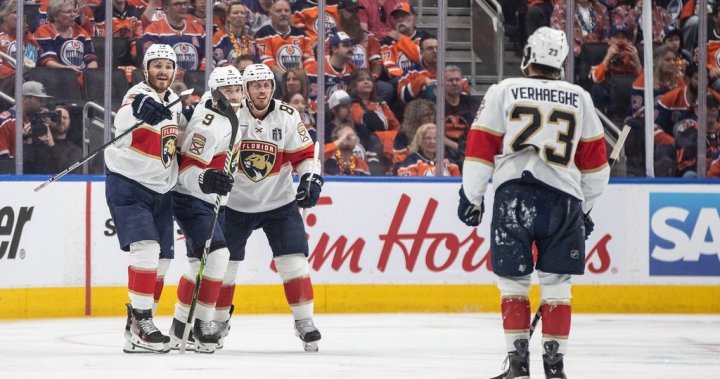The Florida Panthers are two wins away from becoming the fifth Stanley Cup champion in the past six years from a U.S. state with no income tax.

The run has made taxes something of a hot topic around the league. Many contenders going deep in the playoffs come from Sun Belt locales, but the financial benefit is one advantage of many for them in attracting and retaining players. Or is it?
“The tax thing is marginal at best, and I think the real reasons are that we’re trying to do figure out a way to do our best to try to win,” Florida general manager Bill Zito said, adding that team ownership and coach Paul Maurice are also key assets.
“The sun doesn’t kill us. It’s a nice environment to live in. It’s a good place for families. It’s a good place for singles. It’s got a little something for everybody.”
Commissioner Gary Bettman said before the final he “hates the issue,” and that was evident Monday night on TNT when retired player-turned-analyst Paul Bissonnette suggested tax problems should be addressed in the next collective bargaining agreement.
Bettman called it ridiculous and rhetorically asked if the league should subsidize teams in places like New York and Los Angeles.
The NHL tax landscape
The Panthers, Tampa Bay Lightning, Vegas Golden Knights, Dallas Stars, Nashville Predators and Seattle Kraken are the six NHL teams out of 32 in a place with no state income tax. Deputy Commissioner Bill Daly said some other franchises have raised it as a concern but added the league does not share that thinking.
“These imbalances have existed forever,” Daly said.
“There are so many reasons why a player may choose to play in a particular location for a particular team for a particular coach that have nothing to do with the tax situation in that market.”

The union seems to agreed that nothing needs to be negotiated in the next CBA to mitigate varying tax levels. NHLPA assistant executive director Ron Hainsey, who played for seven teams over 17 seasons from 2003-20, cited a run of Cup winners in places like Detroit, Chicago, Los Angeles and Pittsburgh over a decade-plus span as a hole in the argument.
“I’m kind of baffled at times that this is the topic it is,” Hainsey said.

Get breaking National news
“To react this way out there because Florida and Tampa are having their moment here where they have the players, good teams, took less to stay — it’s the same thing that’s happened the previous 12 years with all these other things. So, when we talk about, is it really an issue, I’m not certain that it is.”
- Hardcore Oilers fans go to great lengths to watch games, support team in Stanley Cup final
- Montreal Canadiens defenceman Lane Hutson named NHL rookie of the year
- Dort, Mathurin families unite for Montreal North community during NBA Finals
- Oilers and Panthers embroiled in razor-thin Stanley Cup final ahead of Game 3
Hainsey also pointed out that this is not a top issue in the NFL and NBA. Of course, hockey still has a ways to go to catch up with football and basketball player salaries, even with the NHL cap rising over the next few years because of revenues setting records.
Alan Pogroszewski, who has studied and worked with players on tax matters for more than a decade, said a flexible salary cap would account for the range of tax situations. His AFP Consulting found that since 2016, teams in places with no state income tax qualified for the playoffs at a higher rate, providing what he called “an innate-built-in tax advantage for several of these cities.”
“It’s a combination of many things,” Pogroszewski said Tuesday.
“There’s more factors than just the amount of money that’s spent. It’s how it’s spent. But when you come into an equal playing field and your dollar’s worth more, then that allows you some leeway.”
What do players think?
Brad Marchand, a Canadian who played in Boston for a decade and a half before getting traded to Florida in March, does not dismiss taxes as a factor in choosing where to play.
“The Canadian teams, most of them have an extremely high tax rate, and then the California teams, same thing: Those teams are going to have to pay more money to get certain players than others,” Marchand said.
“When you look at a team like Montreal, what are they 52 per cent (or) 54 per cent? Versus a team like here or Dallas or whatever. That’s a 15 per cent difference. When you add that up, it’s a tremendous amount of money.”


























